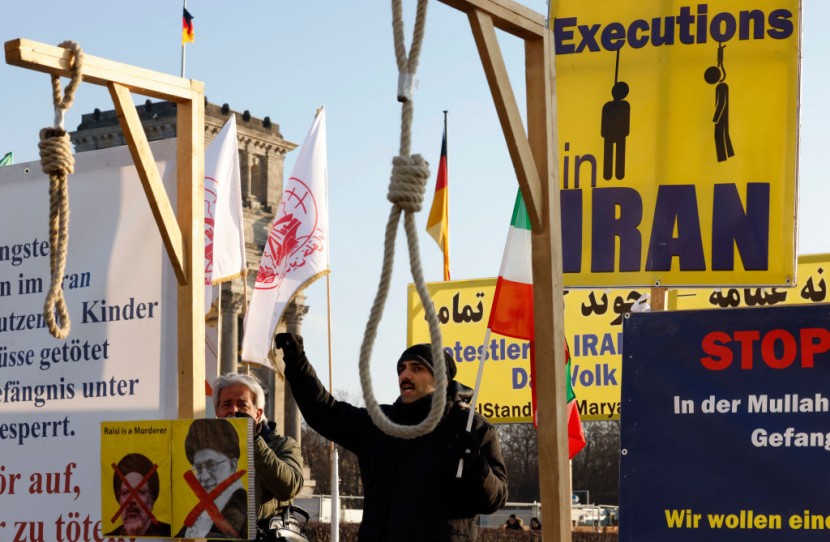A hunger strike was initiated on Thursday by numerous women political prisoners, among them Nobel Peace Prize laureate Narges Mohammadi.
The protest is in response to the recent execution of Iranian protester Mohammad Ghobadlou, a move that has sparked widespread international condemnation, as per to ABC News.
Hunger Strike Against Iranian Executions

The announcement of the hunger strike reverberated through social media, notably on the Instagram account of Narges Mohammadi, where she disclosed that 61 female political prisoners at the notorious Evin Prison in Tehran are participating in the one-day strike. Notably, Mohammadi, who was awarded the Nobel Peace Prize in 2023, has been a steadfast advocate against Iran's use of the death penalty throughout her career.
The recent execution of Mohammad Ghobadlou, 23, heightened concerns about Tehran's approach to capital punishment. Ghobadlou was sentenced to death for the alleged fatal running down of a police officer during protests. Activists decried the trial as grossly unfair, echoing the sentiments of a Norway-based NGO, Iran Human Rights, which reported at least 54 executions in Iran this year.
In a statement posted on her family-run Instagram account, Mohammadi expressed the prisoners' determination to resist and draw attention to those who have faced execution. The hunger strike, she declared, aims to spare the lives of hundreds awaiting execution in Iranian prisons.
Prominent figures, both inside and outside Iran, have rallied in support of the hunger strike. Toomaj Salehi, a rapper rearrested in November for supporting protests, singer Mehdi Yarrahi, and activist Hossein Ronaghi have all pledged to join the strike. Additionally, 37 women, including the British-Iranian Nazanin Zaghari-Ratcliffe, who had been previously imprisoned in Evin, declared their solidarity.
US-based dissident Masih Alinejad, a Voice of America Persian Service TV host, emphasized the need for tangible action. Alinejad warned that without action, more individuals on death row in Iran could face execution soon, according to Voice of America.
Iran's Ghobadlou Execution Raises Judicial Questions
Ghobadlou's execution marked the ninth related to the protests, raising questions about the fairness of the judicial process. Rights groups argued that he suffered from bipolar disorder and was executed despite an order for a retrial. Ghobadlou's lawyer, Amir Raisian, took to social media, asserting that the execution had no legal permission and that he was notified just hours before it took place.
The "Women, Life, Freedom" protests, triggered by the alleged killing of Mahsa Amini by the Iranian "morality police" in September 2022, played a pivotal role in the events leading to Ghobadlou's execution. Amini's arrest for non-compliance with mandatory hijab laws led to nationwide protests that eventually turned deadly.
As the hunger strike unfolds, the focus shifts to at least 11 other Iranian political prisoners deemed at "imminent risk" of execution, according to Human Rights Watch. The organization highlighted the vague charges often leveled against such prisoners, including "enmity against God" and "corruption on earth."
Narges Mohammadi, who has spent much of the last decade in and out of detention for her civil rights advocacy, remains at the forefront of the fight against the death penalty in Iran. Her hunger strike is a poignant expression of resistance against perceived injustices within the Iranian judicial system, UPI reported.
© 2025 HNGN, All rights reserved. Do not reproduce without permission.








